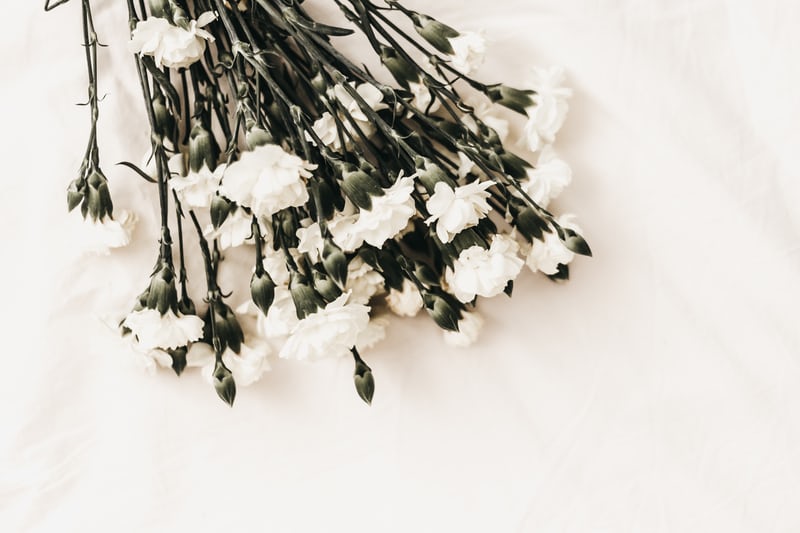Imagine a funeral during a global pandemic: Families must sit rows apart in clusters scattered to the back of the room. Only immediate family members are allowed to approach the body. Emotions run high, but apart from tearful eyes, all faces are concealed by masks. Death and suffering can be found in every direction, but, in that moment, it culminates in that room, in the thickness of the air and in the heaviness of the hearts.
Recently, my family attended such a funeral. A family friend’s mother had died after a long battle against a rare, slow-growing cancer.
It was a cloudy day outside, the sky a brilliant gray and the air humid but cool amid the recent Texas heat. The sky and room matched the white attire many had chosen to wear, in keeping with Hindu funerary custom. The tragic death of a relatively young mother, and there we were called to gather in the most unusual way. I had expected it to be surreal.
But in the room, I saw the pain on my friend’s face, and I realized the way we had gathered didn’t matter. The pandemic had receded like an old memory; it didn’t matter how far apart we sat, or that we were wearing masks. It didn’t matter what the weather was like, whether someone blasted music through their open car window as they sped by, whether someone fumbled connecting their laptop to the projector. A presence had become an absence. And that was that.
Of course, people live on — be it in spirit, in our memories and in their next life. But when a loved one dies, we’re suddenly left without the calming wisdom, the skillful hands that used to make us lunch and the warm lap we used to lie in. At that funeral, I couldn’t fully fathom that absence. Though the death weighed on the community, I had the privilege of driving away after the cremation, of returning to the presences in my own life. I shared in the sadness, but couldn’t quite grasp the absence — I don’t think I fully let myself try. Maybe that’s why, no matter how far ahead we see it coming, we’re never ready when it arrives.
A recent analysis showed that starting social distancing one week earlier in March could have prevented 36,000 deaths. Now, in the rush to reopen, fear of infection seems to be dissipating in many states. While few have the executive authority to implement public health measures, no one is exempt from mortality. I don’t have any special experience around death or loss, nor do I have any special ability to articulate it. Yet I offer this call to at least try, even if we never can, to wrap our heads around that ever-looming absence as we conduct ourselves during a global pandemic. Live safely, and don’t underestimate the toll of death, especially when it is so preventable. And hold your loved ones close.
Perhaps this sentiment was recently encapsulated by my paternal grandfather, who has lived with us for a few years. Now 98 years old and strong, he has outlived many of the people in his life. When I was talking to him one evening, he suddenly hugged me and leaned down, pressing his head against my chest. “What’s wrong?” I asked him in Gujarati. “It’s okay,” he said. He lifted his head, tears in his eyes. “At this age, you see things in a different color.”
Contact Vivek Tanna at vtanna ‘at’ stanford.edu.
